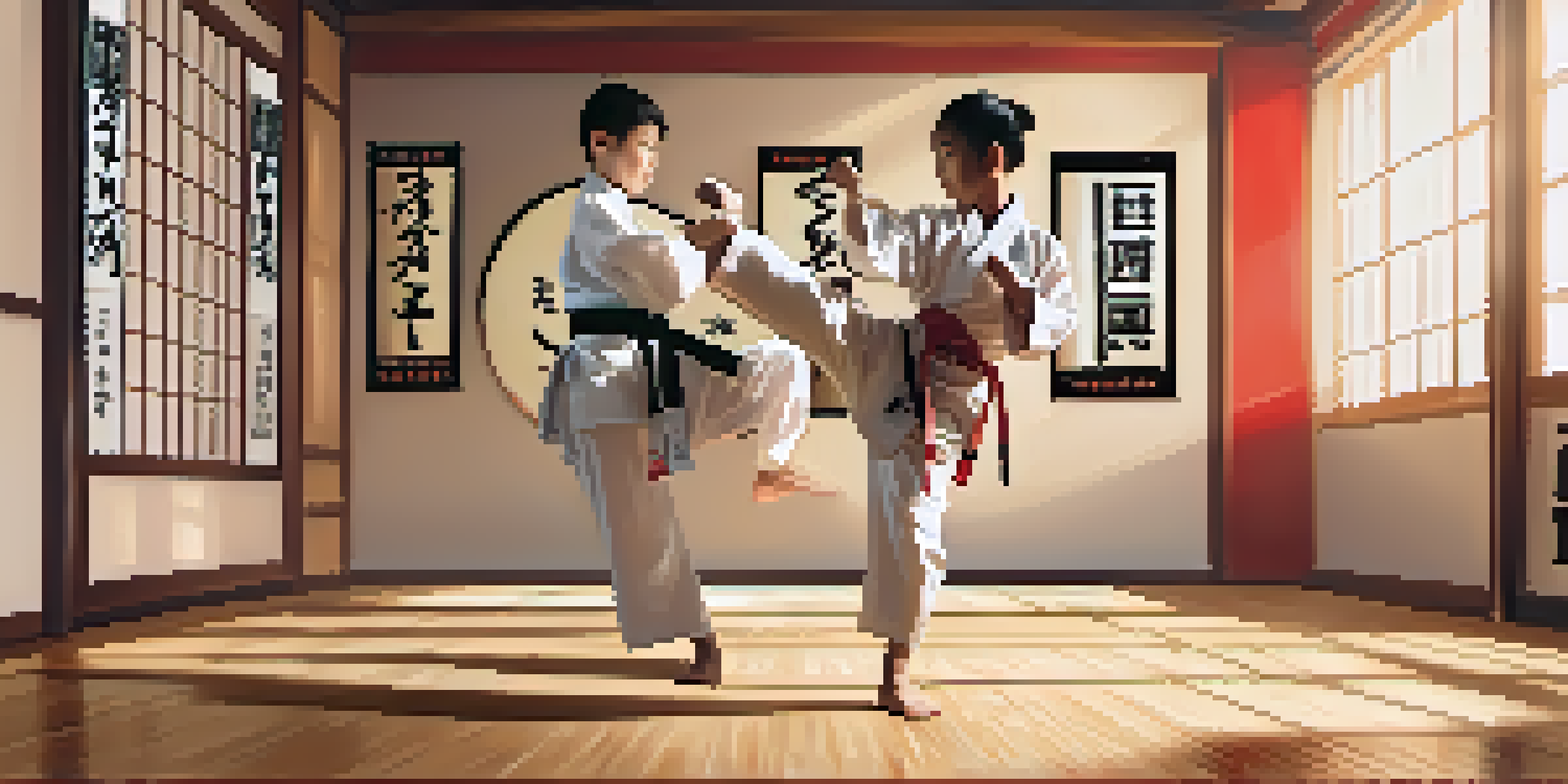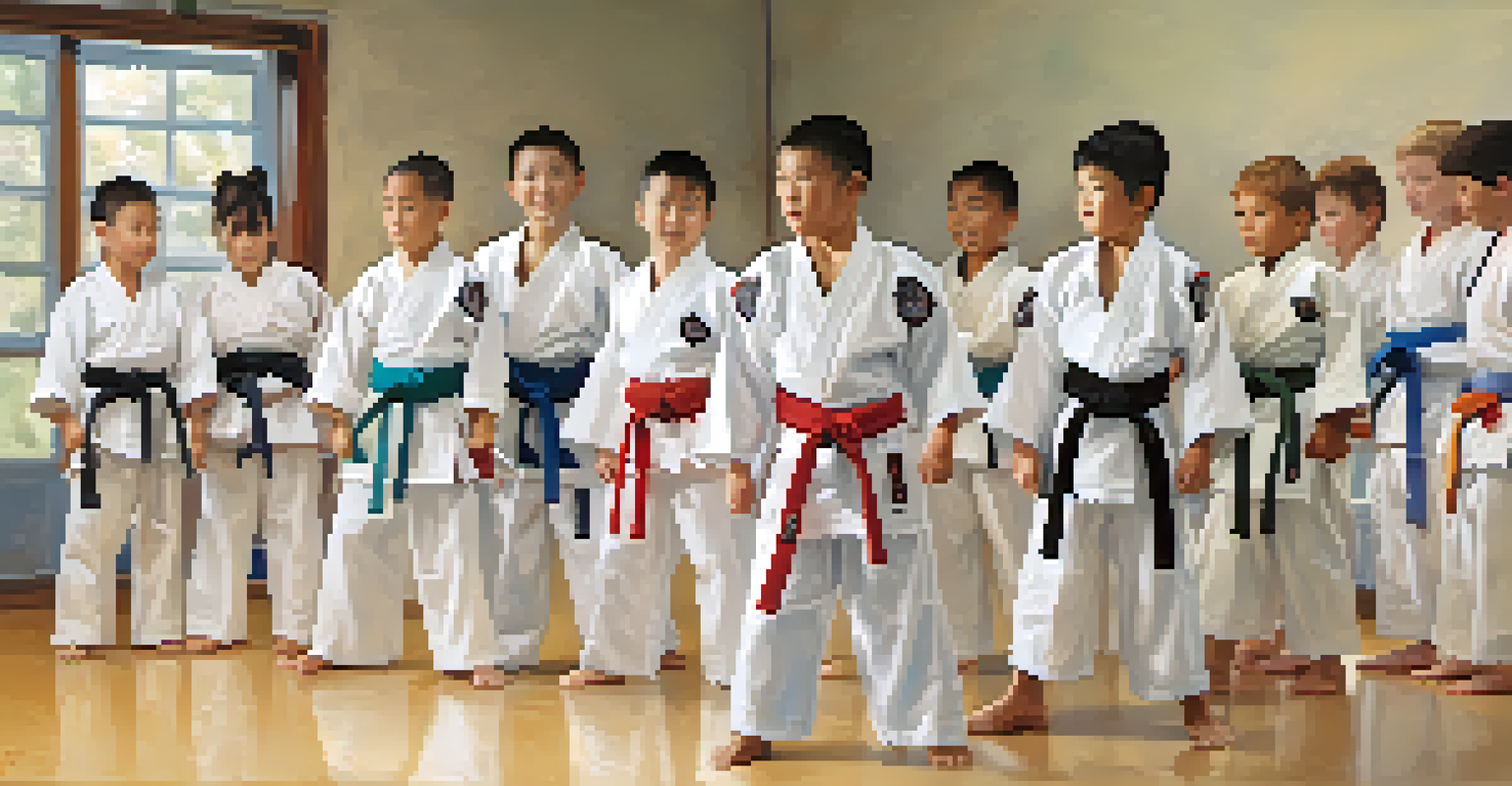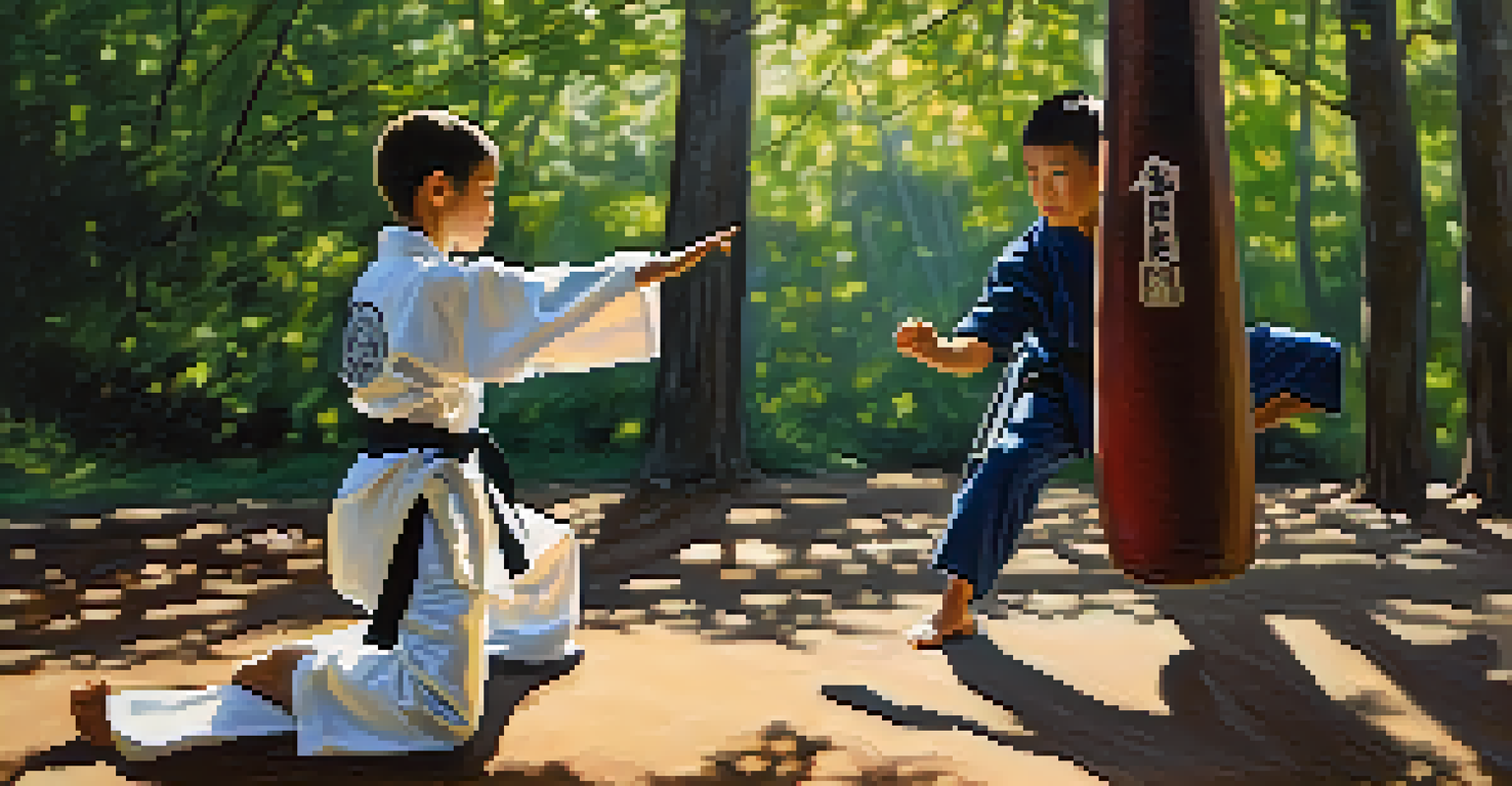The Role of Martial Arts in Youth Resilience Training

Understanding Resilience and Its Importance for Youth
Resilience is the ability to bounce back from challenges and setbacks, and it's crucial for youth. In today's fast-paced world, young people face various pressures, from academic stress to social dynamics. Developing resilience helps them navigate these hurdles with confidence and adaptability. Essentially, it's about cultivating a mindset that sees failure as a stepping stone rather than a dead end.
It's not whether you get knocked down, it's whether you get up.
Martial arts serve as an excellent platform for building this resilience. The training involves both physical and mental challenges that teach students to face discomfort and push through difficulties. Through consistent practice, they learn to manage stress and develop a better understanding of their own capabilities. This newfound resilience can ripple into other areas of their lives, from school performance to personal relationships.
Moreover, resilience isn't just about individual strength; it fosters community and support among peers. In martial arts classes, students often encourage one another, creating a network of camaraderie. This social aspect reinforces the idea that they are not alone in facing challenges, which can significantly enhance their emotional resilience.
How Martial Arts Promote Discipline and Focus
Discipline and focus are foundational elements in martial arts training. Young practitioners learn to follow a structured routine, which cultivates a sense of responsibility and commitment. Each session requires concentration—whether mastering a new technique or sparring with a partner—there's no room for distractions. This focus can translate to better performance in various aspects of life, from academics to extracurricular activities.

Additionally, martial arts emphasize the importance of setting goals, whether it's achieving a new belt rank or perfecting a technique. This goal-setting process teaches youth to break larger objectives into manageable steps, reinforcing perseverance and patience. By achieving these goals, they experience a sense of accomplishment that boosts their confidence and resilience.
Resilience Through Martial Arts
Martial arts training equips youth with the resilience to face challenges by teaching them to view setbacks as opportunities for growth.
Ultimately, the discipline learned in martial arts extends beyond the dojo. It teaches young people the value of hard work and the rewards that come from dedication. When faced with obstacles, they can draw upon these lessons, reminding themselves that consistent effort leads to success, whether in martial arts or life.
Building Confidence Through Mastery and Achievement
One of the most significant benefits of practicing martial arts is the boost in self-confidence it provides. As students progress and master new techniques, they gain a sense of achievement that is hard to replicate elsewhere. This feeling of accomplishment reinforces their belief in their abilities, empowering them to tackle challenges head-on. It's a powerful reminder that hard work pays off, particularly for youth navigating their formative years.
What lies behind us and what lies before us are tiny matters compared to what lies within us.
Moreover, martial arts training often involves overcoming fears, such as sparring or performing in front of others. Each time a young person confronts a fear and succeeds, they build mental strength and resilience. This process of facing fears head-on can help them deal with anxiety and other emotional challenges outside the dojo.
In essence, the confidence gained from martial arts creates a positive feedback loop. As young people become more confident, they're more likely to take on new challenges, whether in sports, academics, or social situations. This growth contributes to their overall resilience, shaping them into well-rounded individuals capable of handling life's ups and downs.
Fostering Emotional Regulation Through Training
Martial arts training often involves intense physical activity, which is an excellent way for youth to channel their emotions. Practicing techniques and sparring allows them to release pent-up energy and frustration in a controlled environment. This physical outlet can lead to improved emotional regulation, helping them manage stress and anxiety more effectively. It's akin to releasing steam from a boiling pot; without this release, emotions can bubble over.
Additionally, martial arts teaches students to remain calm under pressure. Whether faced with a challenging opponent or a demanding instructor, they learn to maintain composure and think critically. This ability to stay grounded during stressful situations is a vital skill that can be applied to various life circumstances, from exams to social conflicts.
Building Community and Support
The camaraderie formed in martial arts classes fosters a sense of belonging, providing emotional support that enhances overall resilience.
As youth develop emotional regulation through martial arts, they also learn important coping mechanisms. Techniques such as deep breathing and visualization can be integrated into their training, providing them with tools to manage their emotions outside the dojo. This skill set not only enhances their resilience but also promotes overall mental well-being.
Cultivating a Sense of Community and Support
Martial arts classes often foster a strong sense of community among participants. This camaraderie can be crucial for young people, as having a support system helps them feel connected and understood. Training alongside peers who share similar goals creates an environment where they can encourage one another and celebrate achievements together. This sense of belonging can be a powerful motivator in their resilience journey.
In addition, martial arts instructors often serve as mentors, providing guidance and support to young practitioners. These mentors help students navigate both their martial arts journey and personal challenges, reinforcing the idea that it's okay to seek help. This relationship can instill a sense of trust and respect, which is vital for emotional growth and resilience.
Ultimately, the community aspect of martial arts training can lead to lasting friendships and connections. As students work together to overcome challenges, they build bonds that extend beyond the dojo. These relationships can provide additional layers of support, helping youth develop resilience not just through individual achievements but through shared experiences and teamwork.
The Role of Goal Setting in Developing Resilience
Goal setting is a crucial component of martial arts training and plays a significant role in resilience building. Students often set both short-term and long-term goals, such as earning a new belt or mastering a specific technique. This practice teaches them the value of planning and perseverance, illustrating that success is often a result of sustained effort over time. By achieving these goals, they learn that persistence pays off, reinforcing their resilience.
Furthermore, the process of setting and revising goals teaches young people to adapt and be flexible. If a goal isn't met, they learn to reassess and modify their approach rather than giving up entirely. This adaptability is an essential aspect of resilience, enabling them to navigate life's inevitable ups and downs with a positive mindset.
Goal Setting Enhances Perseverance
Setting and achieving goals in martial arts cultivates persistence and adaptability, essential traits for overcoming life's obstacles.
Incorporating goal setting into their training also instills a sense of accountability. As they work towards their objectives, they learn to take ownership of their progress, which fosters a deeper connection to their martial arts practice. This sense of responsibility, combined with the skills they develop, equips them with the tools necessary to face future challenges with confidence.
Conclusion: The Lasting Impact of Martial Arts on Resilience
In conclusion, martial arts offer a multifaceted approach to building resilience in youth. Through discipline, emotional regulation, and community support, young practitioners develop a strong foundation that prepares them for life's challenges. The skills learned in martial arts classes extend beyond the dojo, influencing various areas of their lives and helping them cultivate a resilient mindset.
As they face obstacles and setbacks, the lessons learned through martial arts training empower them to persevere with confidence. The sense of achievement and camaraderie experienced in these classes fosters a supportive environment that nurtures emotional growth. Ultimately, martial arts become more than just a physical activity; they become a vital tool for personal development.

Encouraging youth to engage in martial arts can lead to profound benefits, not just in their physical abilities but in their overall mental and emotional well-being. By promoting resilience in this way, we invest in a generation capable of navigating life's complexities with strength and grace.